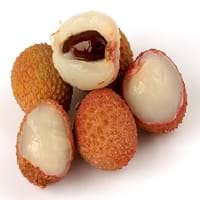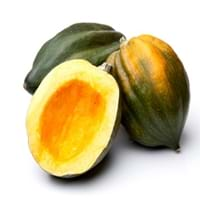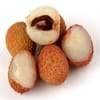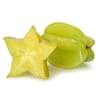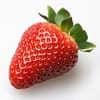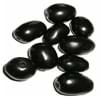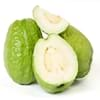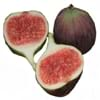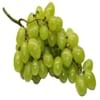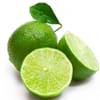Health Benefits
Cancer prevention, Cures gastro-intestinal troubles, Heart care, Muscle pain relief, Prevents blindness from diabetes
Anti-inflammatory properties, Arthritis treatment, Regulates Blood Sugar
General Benefits
Boosts immune system, Digestive aid, Fights against infections, Helps in weight loss, Maintains healthy cholesterol level, Strengthens bones
Boosts immune system, Controls blood sugar levels, Digestive aid
Skin Benefits
Anti-aging benefits, Skin rejuvenation
Nourishes skin, Protects skin from oxidative stress
Hair Benefits
Promotes longer and healthier hair, Protects hair
Prevents hair loss, Promotes longer and healthier hair, Regulates hair growth
Allergy Symptoms
Coughing, Diarrhea, Headaches, Hives, Itching, Labored Breathing, Nausea, Runny nose, Swelling of mouth, tongue or lips, Vomiting, Watery eyes
Asthma, Red rash, Swelling of mouth, tongue or lips
Side Effects
May cause abdominal pain, Diarrhoea, Mouth irritation, Throat irritation, Weight gain
Diarrhoea, Vomiting
Best Time to Eat
As a snack in the late afternoon, Don't consume at night and before bed, Eat the fresh ones, avoid mixing with any other foods, don't eat after meal., Morning time (before lunch), Strictly avoid empty stomach
Along with meal, As a snack in the late afternoon, Don't eat after meal, Eat the fresh ones, avoid mixing with any other foods, don't eat after meal.
Vitamin B5 (Pantothenic Acid)
Vitamin C (Ascorbic Acid)
Vitamin E (Tocopherole)
Not Available
Vitamin K (Phyllochinone)
Not Available
Lutein+Zeaxanthin
Not Available
Calories in Fresh Fruit with Peel
Not Available
Calories in Fresh Fruit without Peel
Not Available
Type
Tree fruit, Tropical
Berry
Season
Spring, Summer
Winter
Varieties
Emperor fruit, Mauritiu, Sweet Heart, Brewster, Haak Yip and Bengal
Bush Table Queen, Heirloom Table Queen, Festival Hybrid, Early Acorn Hybrid, Table Ace, Ebony and Cream of the Crop
Color
Bright red, Pink red
Dark green, Green-yellow, Orange green
Inside Color
Greyish-white
Yellow
Taste
Crunchy, Juicy, Sweet
Sweetish
Origin
China, Indonesia, Philippines, Vietnam
Central America, North America, Unknown
Soil Type
Alluvial, Loam, Well-drained
Well-drained
Climatic Conditions
Absence of strong wind, Cold, Dry, Without frosts
Cold, Sunny
Facts about
- The seed of Lychee fruit is toxic & can adversely affect the digestive system.
- This fruit gives a smoky flavor when eaten dried.
- This fruit is a symbol of love and romance in China.
- It was named as Acorn Squash for its resemblance to a large ribbed acorn.
- It is said that squash was being grown in Mexico as long as 10,000 years ago.
- It was the first food cultivated by native American Indians.
Other Countries
Australia, India, South Africa, Thailand, United States of America
Egypt, India, Iran, Italy, Mexico, Russia, Turkey, Ukraine, United States of America
Top Importer
Hong Kong
Costa Rica
Top Exporter
China
United States of America
Botanical Name
Litchi chinensis
Cucurbita Pepo
Synonym
Nephelium litchi
Winter Squash
Subkingdom
Tracheobionta
Tracheobionta
Division
Magnoliophyta
Magnoliophyta
Class
Magnoliopsida
Magnoliopsida
Subclass
Rosidae
Dillenhidae
Order
Sapindales
Cucurbitales
Family
Sapindaceae
Cucurbitaceae
Species
L. chinensis
Pepo
Generic Group
Soapberry
Not Available
Compare Lychee and Acorn squash
It is important compare Lychee and Acorn squash as both the fruits have a different nutritional value. Their comparison can be done on the basis of their vitamin and mineral content, calories, benefits as well as characteristics, making it easier for us to choose the best fruit for our diet. Their general health benefits are as follows:
Lychee Benefits: boosts immune system, digestive aid, fights against infections, helps in weight loss, maintains healthy cholesterol level and strengthens bones.
Acorn squash Benefits: boosts immune system, controls blood sugar levels and digestive aid.
Fruits are also used as a remedy for various hair problems. The hair benefits of Lychee are: promotes longer and healthier hair and protects hair and hair benefits of Acorn squash are: prevents hair loss, promotes longer and healthier hair and regulates hair growth. Some fruits are known to cause allergic reactions. The allergy symptoms of first fruit are: coughing, diarrhea, headaches, hives, itching, labored breathing, nausea, runny nose, swelling of mouth, tongue or lips, vomiting and watery eyes and the symptoms of second fruit are: asthma, red rash and swelling of mouth, tongue or lips. Get sorted Lychee vs Acorn squash comparison with the help of fruit comparison tool by fruitvs.com.
